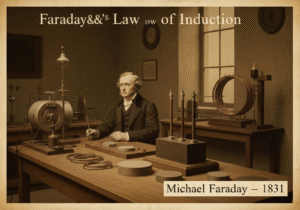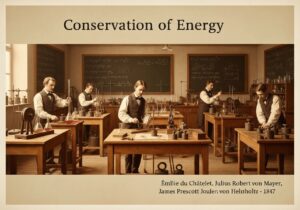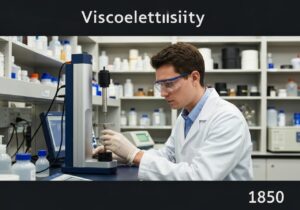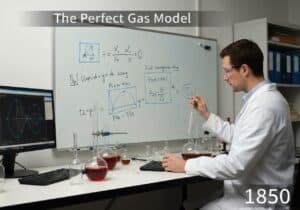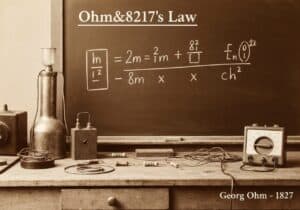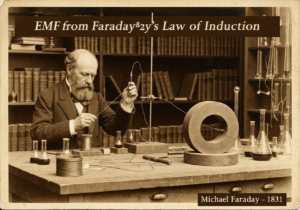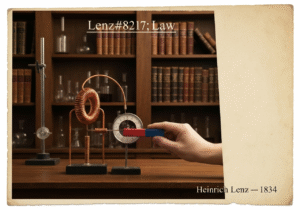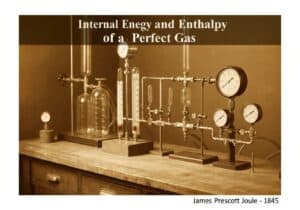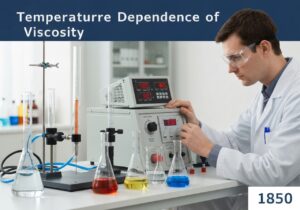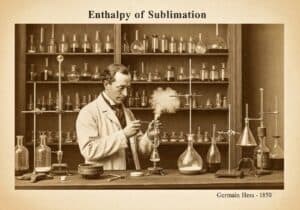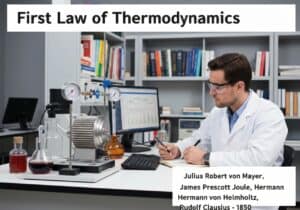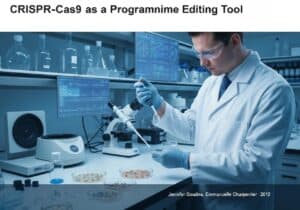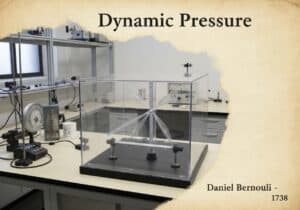Mayer’s relation connects the specific heats of a perfect gas to the specific gas constant ([latex]R_s[/latex]). The relation is [latex]c_p – c_v = R_s[/latex]. For molar specific heats ([latex]C_p[/latex] and [latex]C_v[/latex]), the relation is [latex]C_p – C_v = R[/latex], where [latex]R[/latex] is the universal gas constant. This shows that [latex]c_p[/latex] is always greater than [latex]c_v[/latex].
Mayer’s Relation (thermodynamics)
- Julius Robert von Mayer
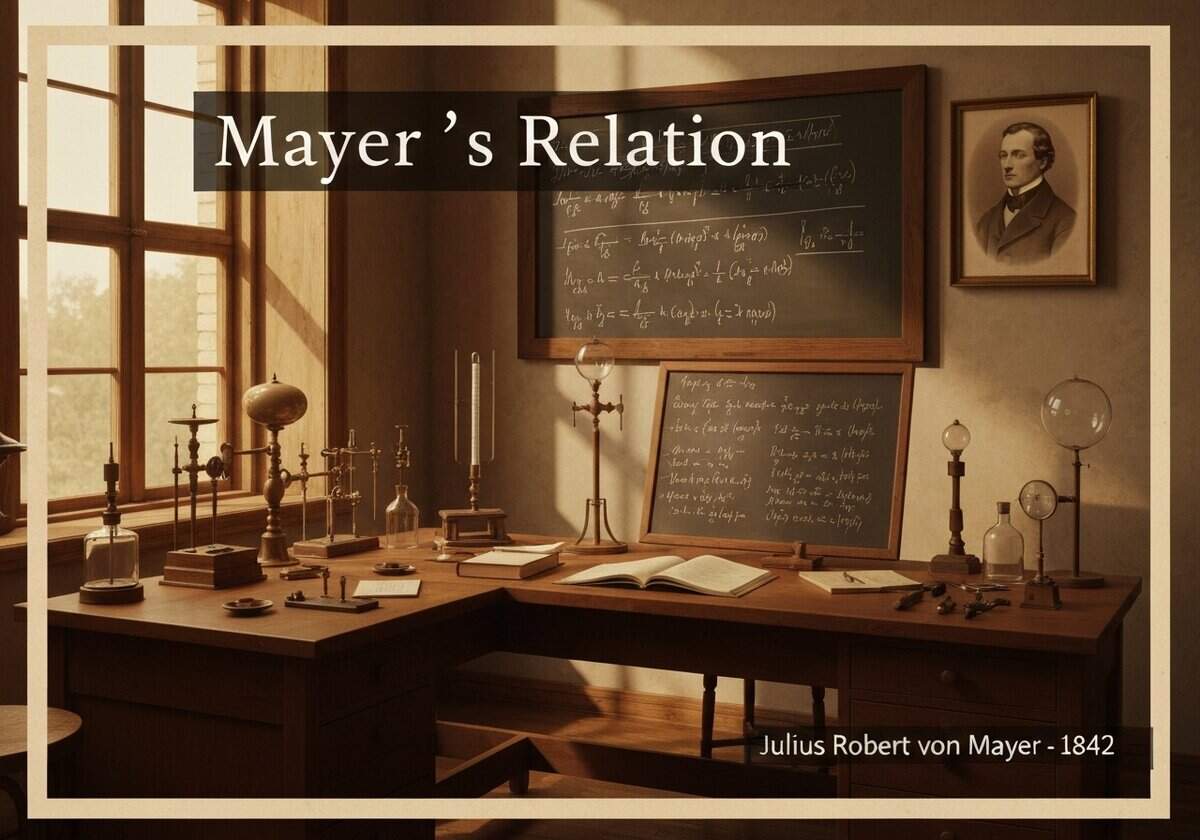
Mayer’s relation is a direct consequence of the first law of thermodynamics applied to a perfect gas. It quantifies the difference between the specific heat at constant pressure ([latex]c_p[/latex]) and the specific heat at constant volume ([latex]c_v[/latex]). When a gas is heated at constant volume, all the added heat goes into increasing its internal energy. However, when heated at constant pressure, the gas must expand to keep the pressure constant. This expansion requires work to be done on the surroundings. Therefore, additional heat energy must be supplied to perform this expansion work, in addition to the heat required to raise the internal energy.
The difference, [latex]c_p – c_v[/latex], is precisely the amount of work done by one unit mass of the gas when its temperature is raised by one degree at constant pressure. For a perfect gas, this work is equal to the specific gas constant, [latex]R_s[/latex]. The relation is derived from the definitions of enthalpy ([latex]h = u + Pv[/latex]) and the perfect gas law ([latex]Pv = R_s T[/latex]). Differentiating with respect to temperature gives [latex]dh/dT = du/dT + R_s[/latex], which directly translates to [latex]c_p = c_v + R_s[/latex]. This simple yet elegant relationship is fundamental in thermodynamics.
Typ
Unterbrechung
Verwendung
Vorläufersubstanzen
- first law of thermodynamics
- concept of specific heat (joseph black)
- ideal gas law (clapeyron)
- definition of enthalpy
- work of sadi carnot on heat engines
Anwendungen
- calculating unknown specific heats from known values
- determining the heat capacity ratio (gamma) for gas dynamic calculations
- thermodynamisch property tables generation
- educational tool for demonstrating the first law of thermodynamics
- fundamental equation in the analysis of gas power cycles
Patente:
Mögliche Innovationsideen
!Professionals (100% free) Mitgliedschaft erforderlich
Sie müssen ein Professionals (100% free) Mitglied sein, um auf diesen Inhalt zugreifen zu können.
VERFÜGBAR FÜR NEUE HERAUSFORDERUNGEN
Maschinenbauingenieur, Projekt-, Verfahrenstechnik- oder F&E-Manager
Kurzfristig für eine neue Herausforderung verfügbar.
Kontaktieren Sie mich auf LinkedIn
Integration von Kunststoff-Metall-Elektronik, Design-to-Cost, GMP, Ergonomie, Geräte und Verbrauchsmaterialien in mittleren bis hohen Stückzahlen, Lean Manufacturing, regulierte Branchen, CE und FDA, CAD, Solidworks, Lean Sigma Black Belt, medizinische ISO 13485
Wir suchen einen neuen Sponsor
Ihr Unternehmen oder Ihre Institution beschäftigt sich mit Technik, Wissenschaft oder Forschung?
> Senden Sie uns eine Nachricht <
Erhalten Sie alle neuen Artikel
Kostenlos, kein Spam, E-Mail wird nicht verteilt oder weiterverkauft
oder Sie können eine kostenlose Vollmitgliedschaft erwerben, um auf alle eingeschränkten Inhalte zuzugreifen >Hier<
Historischer Kontext
Mayer’s Relation (thermodynamics)
(wenn das Datum nicht bekannt oder nicht relevant ist, z. B. "Strömungsmechanik", wird eine gerundete Schätzung des bemerkenswerten Erscheinens angegeben)
Verwandte Erfindungen, Innovationen und technische Prinzipien
